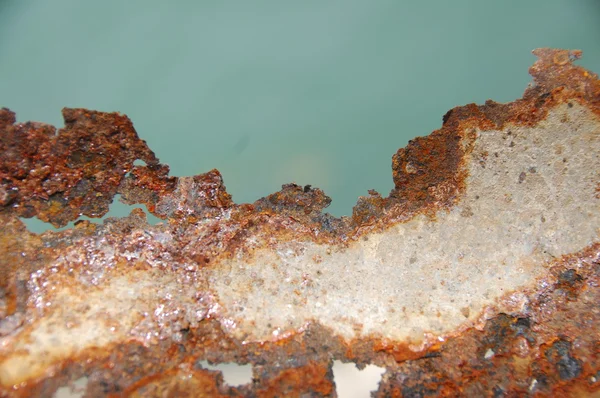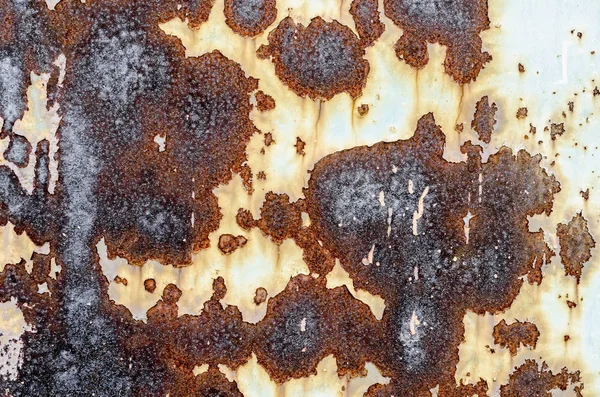Eco-Friendly Corrosion Inhibitors: Sustainable Solutions For Modern Industry
Corrosion poses a significant challenge to various industries, leading to the degradation of materials, increased maintenance costs, and environmental concerns. Traditional corrosion inhibitors often contain toxic substances that can harm ecosystems and human health. However, a growing emphasis on sustainability has spurred the development of eco-friendly corrosion inhibitors. This article explores the significance, types, benefits, and applications of these sustainable solutions in modern industry.
Understanding Corrosion and Its Impact
The Corrosion Process
Corrosion is a natural electrochemical process that occurs when metals react with their environment, leading to material degradation. Factors such as moisture, temperature, and pH levels can accelerate this process. The most common forms of corrosion include rusting in iron and steel, galvanic corrosion in dissimilar metals, and pitting corrosion.
Economic and Environmental Consequences
The economic impact of corrosion is staggering. According to the National Association of Corrosion Engineers (NACE), corrosion costs the global economy over $2.5 trillion annually. This figure includes direct costs such as repairs and replacements and indirect costs like downtime and lost productivity. Additionally, the use of harmful chemicals in traditional corrosion inhibitors can lead to environmental pollution, soil degradation, and adverse health effects.
The Shift Toward Eco-Friendly Corrosion Inhibitors
Definition and Importance
Eco-friendly corrosion inhibitors are substances designed to protect materials from corrosion while minimizing environmental impact. These inhibitors can be derived from natural sources, biodegradable materials, or non-toxic synthetic compounds. The importance of eco-friendly solutions lies in their ability to provide effective corrosion protection while adhering to sustainability principles.
Regulatory Pressure and Market Demand
Increasing awareness of environmental issues has led to stringent regulations regarding the use of hazardous substances in industrial applications. Governments worldwide are pushing for greener alternatives, prompting industries to seek eco-friendly corrosion inhibitors. Market demand for sustainable products is rising as consumers become more environmentally conscious.
Types of Eco-Friendly Corrosion Inhibitors

Natural Corrosion Inhibitors
Natural corrosion inhibitors are derived from plant extracts, organic compounds, and other renewable resources. These substances offer several benefits, including biodegradability and low toxicity. Some well-known natural inhibitors include tannins from tree bark, essential oils, and polysaccharides. Their effectiveness often rivals that of traditional inhibitors, making them viable alternatives in various applications.
Biopolymer-Based Inhibitors
Biopolymers such as chitosan, cellulose, and alginate have gained attention for their corrosion-inhibiting properties. These materials are derived from natural sources, offering a sustainable solution to corrosion protection. They form protective films on metal surfaces, preventing direct contact with corrosive agents. Research shows that biopolymer-based inhibitors can significantly reduce corrosion rates in various environments.
Green Synthetic Inhibitors
While the focus on natural inhibitors is growing, the development of green synthetic inhibitors is also noteworthy. These compounds are designed to mimic the performance of traditional inhibitors without the harmful effects. Researchers are exploring various green chemistry approaches to create synthetic inhibitors that are non-toxic, biodegradable, and effective in a wide range of applications.
Benefits of Eco-Friendly Corrosion Inhibitors
Environmental Sustainability
One of the primary advantages of eco-friendly corrosion inhibitors is their reduced environmental impact. These products help mitigate pollution, reduce waste, and promote the use of renewable resources. By choosing sustainable options, industries can contribute to a cleaner environment and comply with regulations aimed at reducing harmful emissions.
Enhanced Safety and Health
Traditional corrosion inhibitors often contain toxic substances that pose health risks to workers and consumers. Eco-friendly alternatives minimize exposure to harmful chemicals, ensuring a safer working environment. This shift not only protects employees but also enhances the overall safety of products and infrastructure.
Cost-Effectiveness
While the initial cost of eco-friendly corrosion inhibitors may be higher, their long-term benefits can outweigh the investment. Reduced maintenance costs, extended equipment lifespan, and fewer environmental fines contribute to overall cost savings. Moreover, as the market for sustainable products grows, competition may drive prices down, making these alternatives more accessible.
Applications in Modern Industry

Construction and Infrastructure
The construction industry is a major consumer of corrosion inhibitors. Eco-friendly solutions are particularly relevant for protecting steel structures, concrete, and reinforcing bars from corrosion. By implementing sustainable practices, construction companies can enhance the durability of their projects while adhering to environmental regulations.
Oil and Gas
In the oil and gas sector, corrosion can lead to catastrophic failures and environmental disasters. The industry is increasingly adopting eco-friendly inhibitors in drilling, production, and refining processes. These solutions help protect pipelines, tanks, and equipment, ensuring safety and sustainability.
Automotive and Aerospace
The automotive and aerospace industries face significant corrosion challenges due to exposure to harsh environments. Eco-friendly corrosion inhibitors are becoming integral to the production and maintenance of vehicles and aircraft. These products not only enhance performance but also align with the growing emphasis on sustainable practices in manufacturing.
Future Trends and Innovations
Research and Development
As industries continue to embrace sustainability, research and development in the field of eco-friendly corrosion inhibitors will expand. Scientists are exploring new natural sources, developing innovative formulations, and improving the effectiveness of existing products. This ongoing research will lead to more robust solutions tailored to specific industrial needs.
Collaborations and Partnerships
Collaboration between industry, academia, and government organizations will play a crucial role in advancing eco-friendly corrosion inhibitors. Partnerships can facilitate knowledge sharing, funding for research projects, and the development of standards for sustainable practices. By working together, stakeholders can accelerate the adoption of these innovative solutions.
Industry Applications
- Construction: Used for protecting steel structures and concrete from corrosion.
- Oil and Gas: Essential for safeguarding pipelines and equipment in harsh environments.
- Automotive and Aerospace: Important for maintaining vehicles and aircraft performance against corrosion.
6 Nicholas Drive Dandenong South, Vic 3175 Australia
Phone: 03 9768 2322

